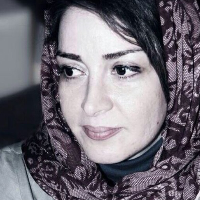The Discursive Functions of Silence in Structuring Fictions
Author(s):
Abstract:
This work examines different types of ‘silence’ as meaningful absence, which leaves a trace in its empty place. This trace as a marker of silence is introduced in various forms. The study of meaningful silence in the literature as discourse shows that this marked silence is present in any text by some discursive indicators. A text expresses part of its message by using words and part of it by making use of silence. As a matter of fact, silence has an interactive role and it is also employed as a narrative technique the in literature to produce a plot. This study explored the functions of written silence in fiction. The question addressed in this study was ‘In which themes and for what discursive functions is the the written silence represented in narrative?’ In fact, the study views written representations of silence as those that cannot be mentioned or are not said intentionally, indeed what is absent in a text for some reasons that leads to a number of different styles of story writing through using silence. The study delineates and analyzes this kind of silence in five Iranian short fictions in terms of three themes: structural, semantic and pragmatic. Consequently, these themes will be deliberated in three syntagmatic, paradigmatic and comitative axes due to constructing Complication, Denouement, Suspense, Atmosphere and Setting by using silence. Structural silence is divided into ellipse and cataphora. Semantic silence consists of metaphor and metonymy. Pragmatic silence, on the other hand, consists of presupposition and implication. Each of these has its specific function in fiction.
Language:
Persian
Published:
Language Related Research, Volume:1 Issue: 2, 2010
Page:
69
https://www.magiran.com/p789720
سامانه نویسندگان
مقالات دیگری از این نویسنده (گان)
-
The Function of Figure and Ground Principle in Reading Nima Yushij’s "Oh, Humans": A Cognitive Poetics Approach
Esfehani*
Literary Criticism, -
The Persian Visual Poetry through Cognitive Poetics Approach
*, Ali Afkhami, Farzan Sojoodi
Language Related Research,


